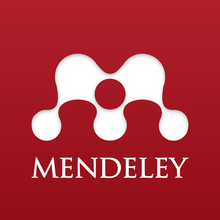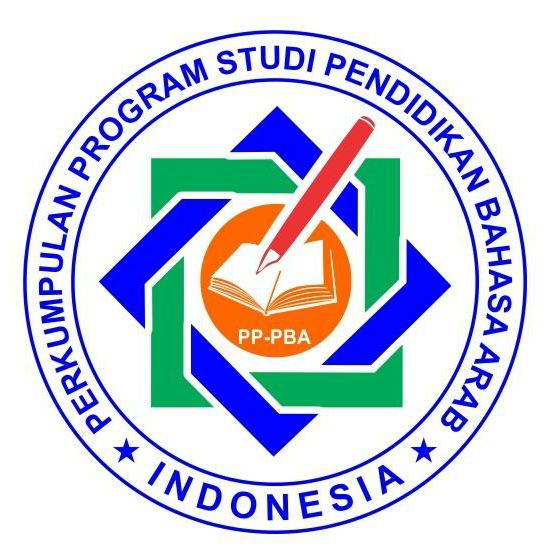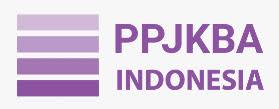Keseimbangan antara Profesionalitas dan Kesejahteraan Guru Bahasa Arab dalam Perspektif Maqasidi Qur'ani
DOI:
https://doi.org/10.37680/aphorisme.v5i1.4369Keywords:
Professionalism, the welfare of Arabic teachers, maqasidi Qur'aniAbstract
This research on language education policy aims to formulate language education policies regarding the inequality between professionalism and teacher welfare from the perspective of Qur'anic maqasidi. The research method used in this policy article is qualitative, with a literature study approach. Policy article data is in the form of policy choices from the perspective of Quranic maqasidi, obtained from various sources of articles, the Quran, applicable regulations, scientific journals, and books. The data collection technique is carried out by documentation. The data analysis was done using data reduction, presentation, and conclusion. The research on language education policy results stated that 21 verses of the Qur'an were reduced into four types of "tawāzun" or "balance." Four types of "tawāzun" are explored with the perspective of Qur'anic maqasidi, namely: 1) balance in the market, 2) balance in the hereafter, 3) universal balance, and 4) religious balance. The four types of "tawāzun" are divided into two types of "tawāzun" at the same time according to the dalālah and qarīnah of each verse. Four types of "tawāzun" or "balance" are thus reduced to formulate language education policies to provide a solution to balance the professionalism and welfare of Arabic teachers. 1) Market share; Providing a balance between rights and obligations, giving good and gentle direction, assigning tasks according to the teacher's ability level, keeping promises including honorarium or salary; 2) The Hereafter; the counsel that teaching is a religious command to plant goodness in the world; 3) Universal; provide balanced work and honorarium; 4) Religious system; every step of learning to hold the principles of the Qur'an. Thus, at least the Qur'ani maqasidi can be a reference for better formulation of school/madrasah policies.
References
Abdel Moneim, A. (2023b). Materi Kuliah “Al-Takhţīţ al-Lugawiy wa al-Siyāsah al-Lugawiyyah.”
AFMLTA. (2005). Professional Standards for Accomplished Teaching of Languages and Cultures. Australian Federation of Modern Language Teachers Associations. file:///D:/Materi Kuliah S3 PBA UIN Suka/Dirāsah ‘an al-Uṭur al-Marji%60iyyah fī Ta%60līm al-Lugah/AFMLTA_standards_for_teaching-1.pdf
Andriani, A. (2015). Urgensi Pembelajaran Bahasa Arab Dalam Pendidikan Islam. Ta’allum, 3(1).
Assembly, G. (2015). Sustainable Sevelopment Goals. SDGs Transform Our World, 2030, 6–28.
Auda, J. (2008). Maqasid al-Shariah as philosophy of Islamic law: a systems approach. International Institute of Islamic Thought (IIIT).
Ayu Rizati, M. (2022). Jumlah Penduduk Muslim Indonesia Terbesar di Dunia pada 2022. DataIndonesia.Id. https://dataindonesia.id/varia/detail/populasi-muslim-indonesia-terbesar-di-dunia-pada-2022
Bisri, A. M. (2020). Studi Analisis Komite Sekolah/Madrasah dalam Mengawal Kualitas Pendidikan. Munaddhomah: Jurnal Manajemen Pendidikan Islam, 1(1), 51–64. https://doi.org/https://doi.org/10.31538/munaddhomah.v1i1.31
Fauziyah, N. L. (2020). Supervisi Pendidikan Perspektif Hadis Nabi Dan Pengembangannya Dalam Meningkatkan Jualitas Profesionalisme Guru. Almarhalah | Jurnal Pendidikan Islam. https://api.semanticscholar.org/CorpusID:225584158
Ghozali, M. (2018). Peningkatan Profesionalitas Guru Dalam Pembelajaran Bahasa Arab Di Ma Darussalam Sengon Jombang. https://api.semanticscholar.org/CorpusID:227397433
Hák, T., Janoušková, S., & Moldan, B. (2016). Sustainable Development Goals: A Need for Relevant Indicators. Ecological Indicators, 60, 565–573.
Hakim, A., & Herlina, N. H. (2018). Manajemen Kurikulum Terpadu Di Pondok Pesantren Modern Daarul Huda Banjar. Jurnal Penelitian Pendidikan Islam,[SL], 6(1), 111–132.
Hanafi, W. (n.d.). Pergeseran Epistemologi Pendidikan Islam.
Kaṡīr, I. (2016). Tafsīr ibn Kaṡīr. Dār al-Kutub al-ʻIlmīyah.
Keshav, M., Julien, L., & Miezel, J. (2022). The Role of Technology in Era 5.0 in the Development of Arabic Language in the World of Education. JILTECH: Journal International of Lingua & Technology, 1(2).
Khasanah, M. (2017). Korelasi antara Profesionalitas Guru dan Pemahaman Psikologi Siswa dalam Pembelajaran Al-Qur’an di SMP Unggulan Al-Falah Buduran Sidoarjo. https://api.semanticscholar.org/CorpusID:193757735
Mahendra, V. B. (2021). Konsep Profesionalisme Guru Dalam Perspektif Pendidikan Islam. Rayah Al-Islam. https://api.semanticscholar.org/CorpusID:194451650
Martadinata, M. A., Situmorang, N. Z., & Tentama, F. (2020). Keseimbangan Kehidupan Kerja, Dukungan Sosial, dan Kesejahteraan Subjektif pada Guru Sekolah Luar Biasa (SLB). Psikologika : Jurnal Pemikiran Dan Penelitian Psikologi. https://api.semanticscholar.org/CorpusID:263268539
Maslow, A. H., & Press, G. (2019). A Theory of Human Motivation. General Press. https://books.google.co.id/books?id=SV2HDwAAQBAJ
Masyithoh, E. N. (2018). Pengaruh Tuntutan Profesionalitas dan Kesejahteraan terhadap Stres Guru PAI Perempuan di SMA Kota Yogyakarta. https://api.semanticscholar.org/CorpusID:150006695
Moeloeng, L. (2011). Metodologi Penelitian Kualitatif. Rosda Karya.
Muradi, A. (2016). Pengembangan Kompetensi Guru Bahasa Arab melalui IMLA sebagai Organisasi Profesi. Arabi : Journal of Arabic Studies, 1(2), 1. https://doi.org/10.24865/ajas.v1i2.2
Pasipamire, N. (2020). Integration in Mixed Methods Research Designs by Graduate Students at the University of Science and Technology. Advances in Library and Information Science, 456–478. https://doi.org/10.4018/978-1-7998-1471-9.ch023
Presiden Republik Indonesia. (2017). Peraturan Presiden Nomor 59 Tahun 2017 tentang Pelaksanaan Pencapaian Tujuan Pembangunan Berkelanjutan (59). 2017. https://peraturan.bpk.go.id/Home/Details/72974/perpres-no-59-tahun-2017
Pusat, P. (2015). Undang-undang tentang Guru dan Dosen (14). 2015. https://peraturan.bpk.go.id/Home/Details/40266/uu-no-14-tahun-2005
Pusat, P. (2021). Peraturan Pemerintah (PP) Nomor 57 Tahun 2021 tentang Standar Nasional Pendidikan (57). https://peraturan.bpk.go.id/Home/Details/165024/pp-no-57-tahun-2021
Putra, W. H. (2017). Strukturalisme dan Revitalisasi Applied Linguistics. Proceedings of Annual Conference for Muslim Scholars, Seri 2, 868–877.
Qilqilah, A. A. (1992). Al-Balāgah al-Muṣtalāḥiyyah.
RI, K. (2003). Sistem Pendidikan Nasional. http://www.slideshare.net/ahmadamrizal/01uu-no20-tahun-2003-tentang-sistem-pendidikan-nasional
RI, K. (2008). Peraturan Mennteri Agama RI: Standar Kompetensi dan Standar Isi Pendidikan Agama Islam dan Bahasa Arab. Kemenag RI.
Ryding, K. C. (2006). Teaching Arabic in the United States. Handbook for Arabic Language Teaching Professionals in the 21st Century, 13–20.
Septiana, D. N., Bafadal, I., & Kusumaningrum, D. E. (2018). Pelibatan Komite Sekolah dalam Peningkatan Mutu Pendidikan. JAMP: Jurnal Administrasi Dan Manajemen Pendidikan, 1(3), 293–301.
Seyfarth, J. T. (2002). Human Resources Management for Effective Schools. ERIC.
Soliman, R., & Khalil, S. (2022). The Teaching of Arabic as a Community Language in the UK. International Journal of Bilingual Education and Bilingualism, 1–12.
Wijaya, M. (2017). Manajemen Pembelajaran Bahasa Arab Sinergi Teori dan Praktek. Al-Tanzim: Jurnal Manajemen Pendidikan Islam, 1(1), 1–18.
YDSF, T. P. (2011). Al-Qur’an dan Terjemahnya. Yayasan YDSF.
Yusutria. (2017). Profesionalisme Guru Dalam Meningkatkan Kualitas Sumberdaya Manusia. Curricula, 2(1).
Downloads
Published
Issue
Section
License
Authors who publish with this journal agree to the following terms:
Authors retain copyright and grant the journal right of first publication with the work simultaneously licensed under a Creative Commons Attribution-NonCommercial 4.0 International License that allows others to share the work with an acknowledgement of the work's authorship and initial publication in this journal.
Authors are able to enter into separate, additional contractual arrangements for the non-exclusive distribution of the journal's published version of the work (e.g., post it to an institutional repository or publish it in a book), with an acknowledgement of its initial publication in this journal.
Authors are permitted and encouraged to post their work online (e.g., in institutional repositories or on their website) prior to and during the submission process, as it can lead to productive exchanges, as well as earlier and greater citation of published work.




.jpg)


